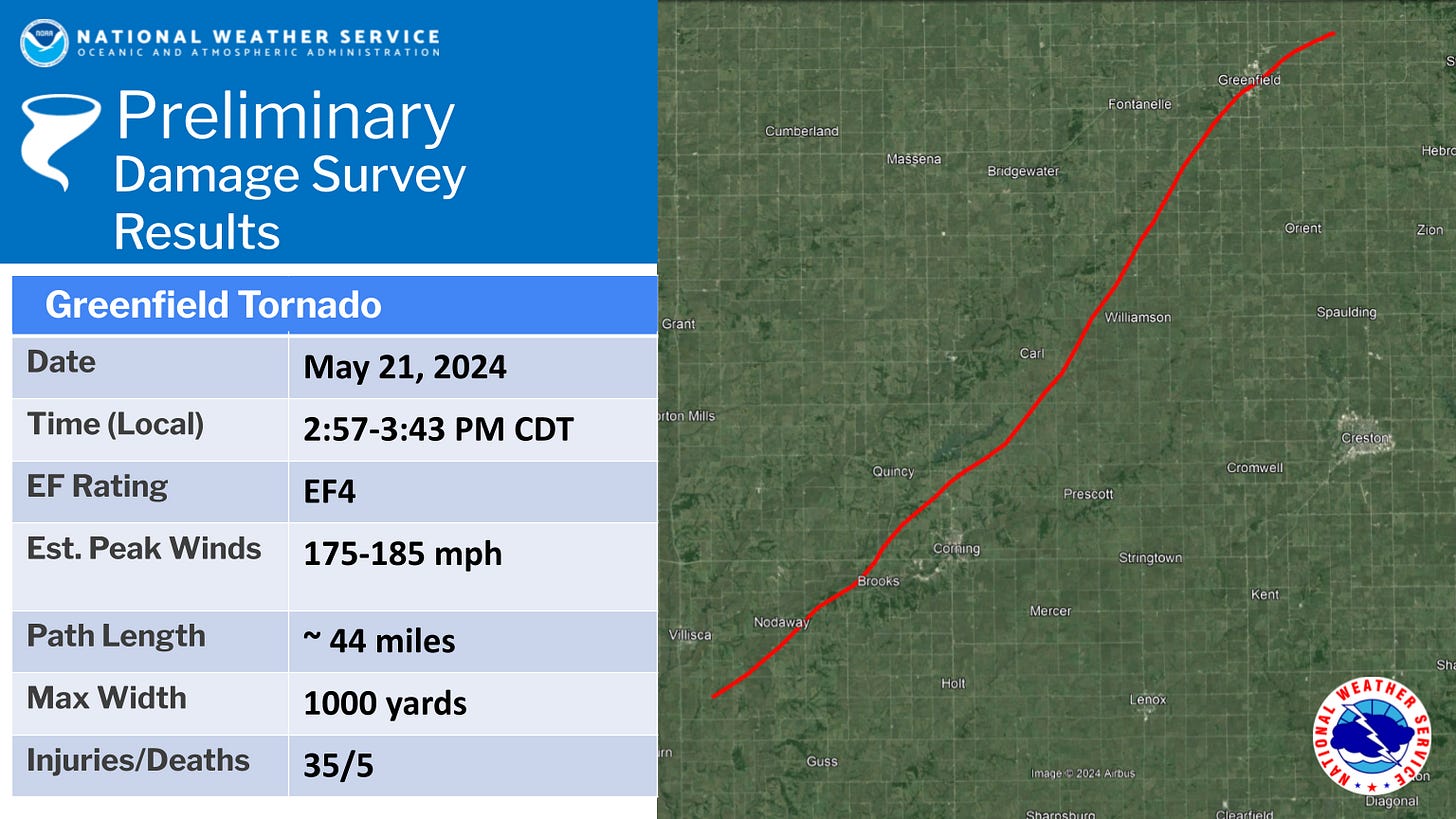Numbers and their limitations
On social-media loudmouths, streaming storm-chasers, and why cheerleading for high tornado intensity scores misses the point
The National Weather Service initially identified the tornado that struck Greenfield, Iowa, as "at least" an EF-3. Subsequent investigation found evidence sufficient to escalate that rating to EF-4. No small number of online commenters saw fit to second-guess the preliminary rating, and many more have vocally criticized and mindlessly second-guessed the upgraded rating, as well -- enough that they came right out and addressed the early critics.
■ The problem we face is that the intensity ratings are based upon evidence and are bounded by specific criteria. Those don't fit well within a public space that craves conflict and extremity.
■ Things are made even more complicated by the modern storm-chasing environment. We are blessed to live at a time when portable Doppler radar systems operated by scientists are capturing valuable data that will undoubtedly have scientific merit down the road. And we will likely find considerable benefit from the emerging field of drone-based tornado surveillance. Radar can pinpoint only so well; live video tracking may be available sooner than we think.
■ But there are also some live-streamers who are best characterized along a spectrum ranging from "adrenaline junkies" to "disaster pornographers". They profit from hype, by turning audiences into cheering sections. Cheering for what, though? Bigger disasters?
■ The human toll from a tornado isn't neatly contained within a number. Meteorologists need to classify what they see in a scientific way so they can make better models in the future; after all, the value of a model is measured by the quality of its predictions.
■ The rest of us don't have to observe scientific classifications to have natural, empathetic responses to events. While the EF Scale attempts to estimate peak wind speeds, it does so on the basis of observable damage. And that damage, even lower on the scale, can be hard to grasp even if it doesn't quite qualify as "incredible". Perhaps instead of clamoring for higher ratings, we should level-up our realization of how bad even lower-scale tornadoes can be for the individuals affected.



